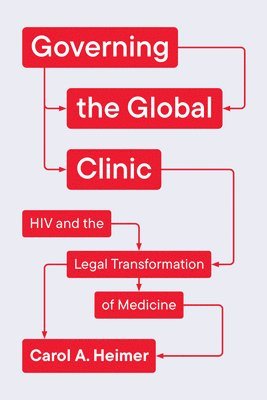Kommande

489:-
Andra format:
- Inbunden 1519:-
A deep examination of how new, legalistic norms affected the trajectory of global HIV care and altered the practice of medicine. HIV emerged in the world at a time when medicine and healthcare were undergoing two major transformations: globalization and a turn toward legally inflected, rule-based ways of doing things. It accelerated both trends. While pestilence and disease are generally considered the domain of biological sciences and medicine, social arrangements-and law in particular-are also crucial. Drawing on years of research in HIV clinics in the United States, Thailand, South Africa, and Uganda, Governing the Global Clinicexamines how growing norms of legalized accountability have altered the work of healthcare systems and how the effects of legalization vary across different national contexts. A key feature of legalism is universalistic language, but, in practice, rules are usually imported from richer countries (especially the United States) to poorer ones that have less adequate infrastructure and fewer resources with which to implement them. Challenging readers to reconsider the impulse to use law to organize and govern social life, Governing the Global Clinic poses difficult questions: When do rules solve problems, and when do they create new problems? When do rules become decoupled from ethics, and when do they lead to deeper moral commitments? When do rules reduce inequality? And when do they reflect, reproduce, and even amplify inequality?
- Format: Pocket/Paperback
- ISBN: 9780226838649
- Språk: Engelska
- Antal sidor: 416
- Utgivningsdatum: 2025-04-29
- Förlag: The University of Chicago Press

